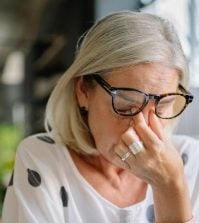OECD chief of staff calls for bold policies on gender equality

Governments have been urged to increase female participation in decision-making as part of efforts to crack down on corruption, tackle unemployment and boost economic growth.
OECD chief of staff and Sherpa to the G20 Gabriela Ramos told the recent Conference on Business, Finance and Gender that “a bold policy response” is needed if governments are to close the gender gap and address global challenges.
“We must fully use women’s contribution to economic growth by raising their participation in the labour market and ensuring inclusive decision-making,” she told participants at the OECD conference. “We need everybody on the deck to boost productivity and spur inclusive growth.”
Ramos was among the speakers at the Paris event, which brought together senior decision-makers from the public and corporate sector, business experts and academics to discuss gender issues in financial literacy, pensions and corruption.
She said that it’s “high time to ensure gender equality in order to achieve a stronger, more sustainable and inclusive growth – one that benefits all and creates opportunities for all”.
Hera Hussain, who promotes open data through her work at Chayn, EmpowerHack and OpenCorporates, said that policies aimed at tackling corruption have so far been too one-dimensional and haven’t taken race, gender or privilege into account.
She highlighted research by the Open Heroines Web Foundation that found just nine out of 75 countries in the Open Government Partnership have action plans covering women or gender.
Government corruption has a significant impact on women, she said, adding that $1tr goes missing from developing countries every year, resulting in lower government budgets, poorer public services and more women with nowhere to go.
Hussain also spoke of the role of corruption in sex trafficking and raised the issue of “sextortion”, which takes place when women cannot pay bribes.
Many women don’t report sextortion because of fear of seeming “consensual” even when they have no choice, she said, adding: “Low level of awareness on the issue helps the practice to flourish in silence.”
Transparency International’s internal managing director Robin Hodess agreed that there is “an important gender dimension when addressing corruption and corruption risk”.
She told Global Government Forum: “Corruption can affect women disproportionately, since the poorest and weakest pay a penalty much higher than others when ‘free’ services such as healthcare and education are not free at all. Corruption can also deny women their basic human rights, with crimes such as sextortion an extreme example.”
“There is some interesting although inconclusive evidence on whether more women’s involvement in politics reduces corruption,” Hodess added.
“Overall, the findings seem to suggest that women may make a difference for the better, in stopping corruption, but that certainly gender balance seems to help in promoting better governance. In many countries we are still far from that goal.”
She told this website that open government is “crucial to tackling corruption”. “Open government means transparency about what a government decides – and what a government spends – on behalf of its citizens,” he said.
“Corruption flourishes when there is too much discretion and darkness around money and politics. Open government means accessible government, it means government that makes it a practice of reaching out and listening to its constituents, enabling their participation.
“It’s an approach that not only allows accountability for those in power, but can also build trust in society. Open government helps to reduce the space and tolerance for corrupt behaviour.”
For up to date government news and international best practice follow us on Twitter @globegov
See also:
New Australian women leaders foundation to be led by ABC TV news presenter




















